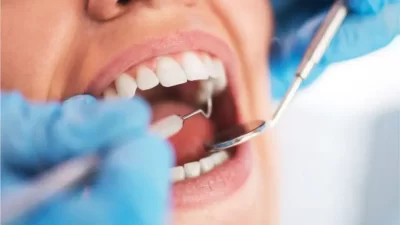Dental diseases such as dental caries and gingivitis are common non communicable diseases which pose a major huge burden on our health systems and
Dental diseases such as dental caries and gingivitis are common non communicable diseases which pose a major huge burden on our health systems and the global economy. Most dental conditions are however preventable when certain modifiable risk factors such as sugar, tobacco, alcohol consumption and oral hygiene are checked.
Sadly, oral diseases are paid less attention leading to late diagnosis and poor outcomes. The reason for this late detection has been associated with certain myths attached to dental practice. Dentistry has evolved over the years from traumatic prolonged surgeries to quick painless procedures with advanced technology such as laser in contemporary times. However, there are still some widespread myths which sometimes discourage people from seeking professional treatment but rather make them resort to self-treatment eventually worsening condition.
In Ghana, some people associate certain myths with dental conditions and treatments. Common among them is the assumption that dental extraction affects the eyes and can lead to painful jaw swelling. This is however not true because the nerves that supply the eyes are different from those connecting the teeth. A tooth extraction cannot cause blindness or poor eye sight but a neglected cavity, which becomes severely infected, can lead to a facial swelling. This swelling may involve the peripheries of the eyes bringing some discomfort. It is therefore necessary to seek early treatment especially patients with underlying conditions such as diabetes. Swelling developing after an extraction usually is not a complication of the procedure but a part of the healing process. This swelling resolves within few days after following all instructions from the dentist such as using warm saline rinse and staying away from tobacco and strenuous activity.
Some Ghanaians believe it is normal to have bleeding gums. Others think professional dental cleaning causes sensitivity and sometimes creates gaps in teeth. Bleeding gums however occurs when plaque and tartar build beneath the gum line where normal brushing may not reach. Progression of this condition leads to bad breath and tooth loss. Professional dental cleaning also known as scaling and polishing, gets rid of hidden tartar and cures bleeding gums. This makes it a safe routine dental procedure. However people with advanced gum disease resulting from several years of tartar build up and poor oral hygiene may experience gaps in the teeth and some form of sensitivity after the procedure. This is usually due to the person feeling the absence of the harmful tartar which used to fill the spaces between the teeth and below the gums. The sensitivity may be as a result of gum recession from severe disease in some patients but this may just be short lived. In case it persists, fluoride varnish, desensitizing toothpaste, simple filling or in some cases, a graft surgery may be done by the dentist to provide relief.
A child is known to have a natal tooth when he/she has already a tooth at birth. Some children also have teeth some few months after birth. These conditions can put fear in parents who may think it’s a sign of a serious deformity. Some cultures may even associate some supernatural cause to this occurrence, preventing parents from seeking proper medical attention. Normally, a child should have an erupting tooth from six months after birth, but some children may have theirs too early which may not necessarily be a problem. Such early teeth become a challenge when they interfere with feeding and traumatize the gums and other soft tissues. Some of them are also loose and stand the chance of being aspirated even though this is a rare possibility. It is best to see a dentist to examine the baby so the best treatment is given. They can be extracted if they pose any serious health threats or can just be monitored if they do not.
Dental treatment is an investment the returns of which are better nutrition, improved general health, greater employment potential and enhanced self-esteem of the individual. Therefore it is necessary to seek expert opinions when we find ourselves in distress rather than relying on myths which may lead us astray. It is a requirement to visit the dentist at least biannually so that our oral health needs can be addressed.
By Dr Kwabena Amponsah-Kodua
The writer is a Dental Surgeon at Excel Dental Clinic in Achimota, Accra-Ghana.

COMMENTS